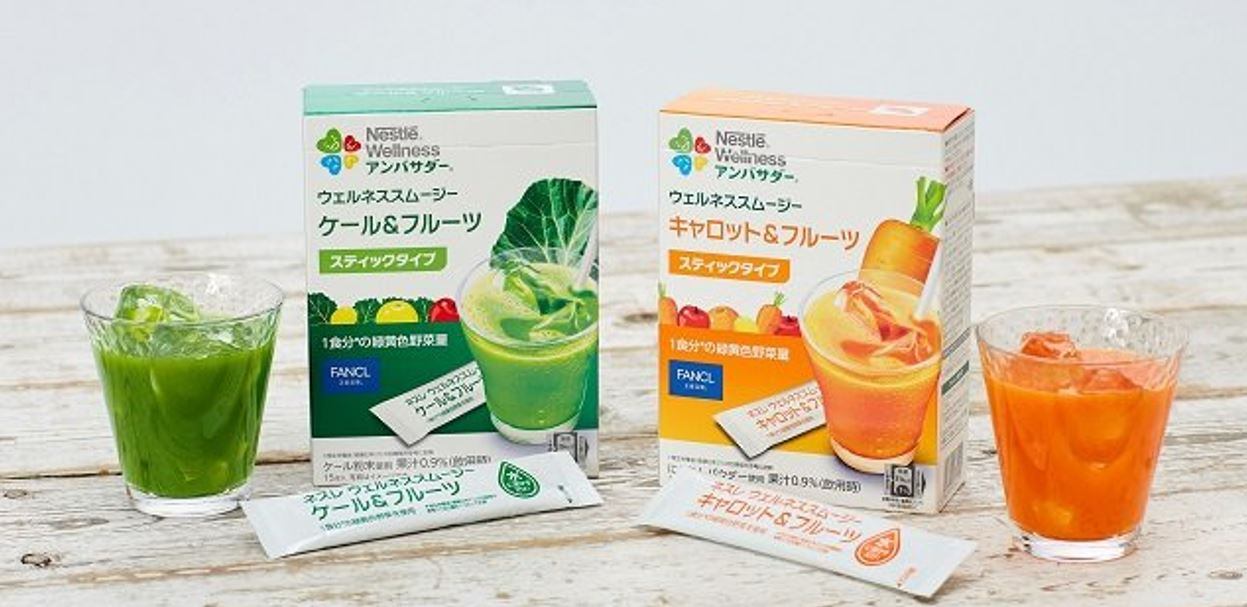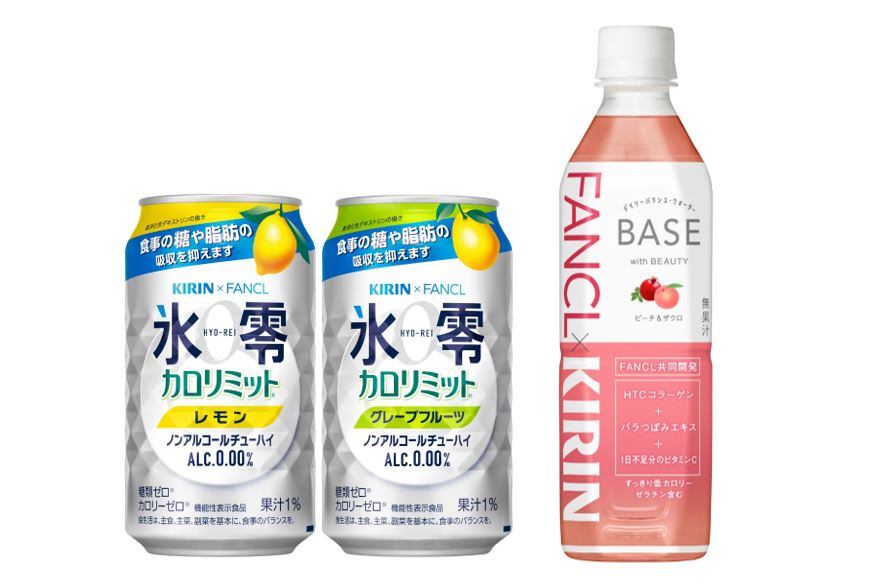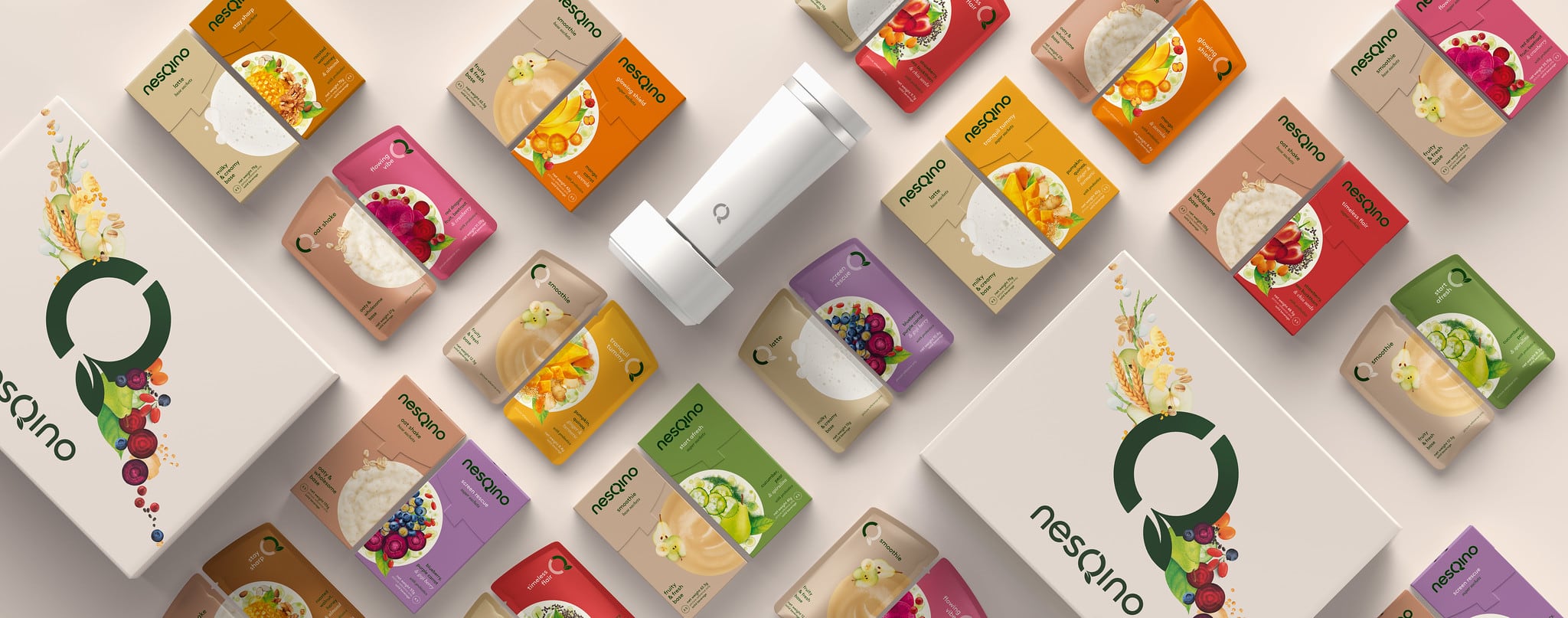The two products are Nestle Wellness Smoothie in kale and fruit as well as carrot and fruit flavours.
The Nestle Wellness range aims to offer solutions to nutritional and health problems, branching out from Nestle’s main food and beverage business.
Previously, the kale smoothie was launched in 2017 in a pod format compatible with Nestle’s Nescafe Dolce Gusto coffee machine.
Other products offered under the Nestle Wellness line include matcha Calolimit and latte with collagen. Calolimit is FANCL’s dietary supplement said to suppress sugar and fat absorption in healthy people.
Now the firms have created a powdered stick-type version which can be dissolved in water and suitable for consumers without the coffee machine.
To provide added convenience, the sachets are packed individually, allowing consumers to bring anywhere and consume anytime.
According to Nestle Japan’s media relations manager Tokuo Hosokawa, the ingredients were provided by FANCL, while Nestle was responsible for manufacturing and distribution.
Eat your fruits and vegetables
Hosakawa explained the firms focused on developing fruit and vegetable smoothies to meet the low intake among the Japanese population.
In Japan, a minimum of 350g of vegetable and 200g of fruit per day are recommended. However, results from the Japanese National Health and Nutrition Survey in 2019 indicated that vegetable intake was at 281.4g and fruits at 100.9g daily on average for adults.
Xiuting Mo et al (2019) reported in BMC Public Health that the consumption of fruits and vegetables among adults in Japan is lower than that of other countries. The national average vegetable and fruit intake in Japan was ranked 77th and 133th respectively among 172 countries in 2013.
Considered a high income developed market, the lower than average intake is a cause for concern, especially with many evidence from observational studies reporting fruit and vegetable consumption protective effect against non-communicable diseases such as cardiovascular diseases and diabetes.
Researchers explained in their study: “Vegetable consumption has decreased in recent years due to an increasing preference for a western style of diet and changes in lifestyle resulting in an increased need for foods requiring less preparation time and having a longer shelf-life.”
Fresh fruit consumed has also decreased due to increasing prices which affects the younger generation with lower purchasing power, and higher availability of processed foods.
One serving of Nestle Wellness smoothies is equivalent to 40g of kale or carrot respectively. Hosakawa said the recommended intake is one serving a day.
The smoothies are currently sold on Nestle’s online store, the kale and fruit smoothie retail for JPY1,558 (US$14.70), and the carrot and fruit smoothie for JPY1,644 (US$15.50) (15 sachets each).




